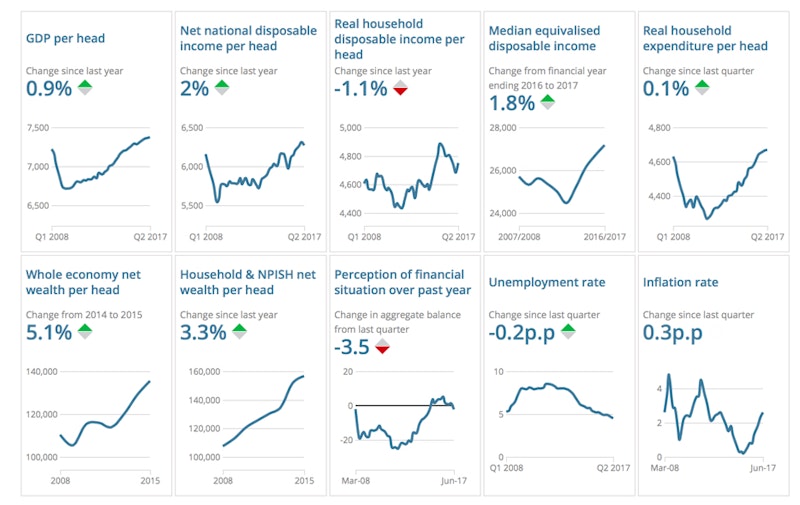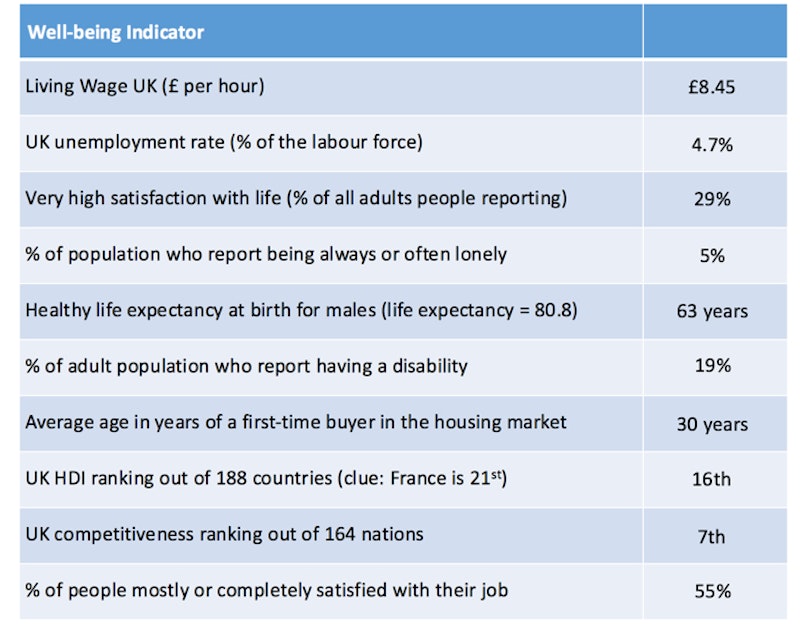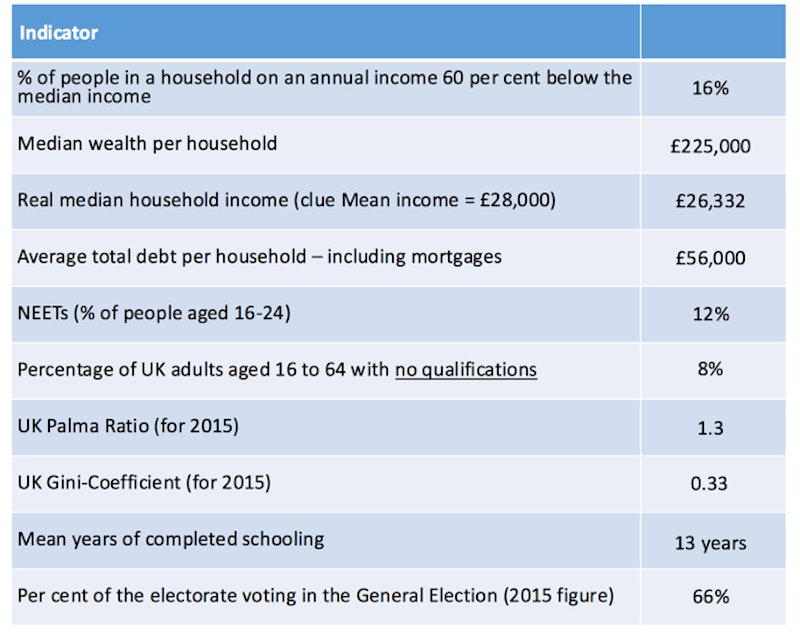Study Notes
Economic Well-Being
- Level:
- AS, A-Level, IB
- Board:
- AQA, Edexcel, OCR, IB, Eduqas, WJEC
Last updated 8 Aug 2019
The measure of a nation’s well-being goes beyond the level of and rate of growth of GDP. Economic well-being is a multi-dimensional concept.

Well-being might be measured for example using data on:
- Surveys of Life Satisfaction
- Years of healthy life expectancy
- Median Household Income
- Household Net Wealth
- Percentage of people in vulnerable employment
- Civic / democratic participation rates
- Feelings of safety and security

The economist Simon Kuznets helped to standardise the measurement of GNP in the 1930s. But he disapproved its use as a general indication of welfare, writing that “the welfare of a nation can scarcely be inferred from a measure of national income”
The Gig Economy
Many more people now work in jobs associated with the Gig Economy. These are jobs characterised by non-contract work, freelancing often using digital platforms such as Uber and Deliveroo.
A recent RSA/Ipsos Mori survey found that 59% of respondents working the gig economy are in professional, creative and administrative fields, with 18% providing skilled manual services (such as plumbing); 20% of the respondents worked as couriers or drivers, and another 17% in personal services such as cleaning. (Source: Coyle, NIESR, May 2017)

You might also like
Living Standards and Human Development Index
Topic Videos

We are much better off than the official statistics say
16th March 2016

Will there be a 'watering down' of the National Living Wage?
7th September 2016

UK House Prices and Living Standards - "A-maze-balls" activity
7th November 2017

Is it time to end our fixation with GDP and growth?
18th June 2019

Amsterdam embraces the doughnut economic model
14th April 2020

How to make poor areas richer
20th January 2023
Daily Email Updates
Subscribe to our daily digest and get the day’s content delivered fresh to your inbox every morning at 7am.
Signup for emails